IFAW on the ground in Cyclone Alfred’s aftermath
IFAW on the ground in Cyclone Alfred’s aftermath
Nearly 200 koalas assessed by response team
March 26, 2025
Through the tireless efforts of the Northern Rivers Emergency Response Network, led by our partner Friends of the Koala and emergency response coordinator Maria Matthes, nearly 200 koalas have been found and visually assessed in the last two weeks. Six were sadly found dead at the bases of trees.
The team found 12 koalas caked in mud, and they acted quickly, so far capturing two of them and bringing them to our partners’ specialist veterinary teams for cleaning and health checks.
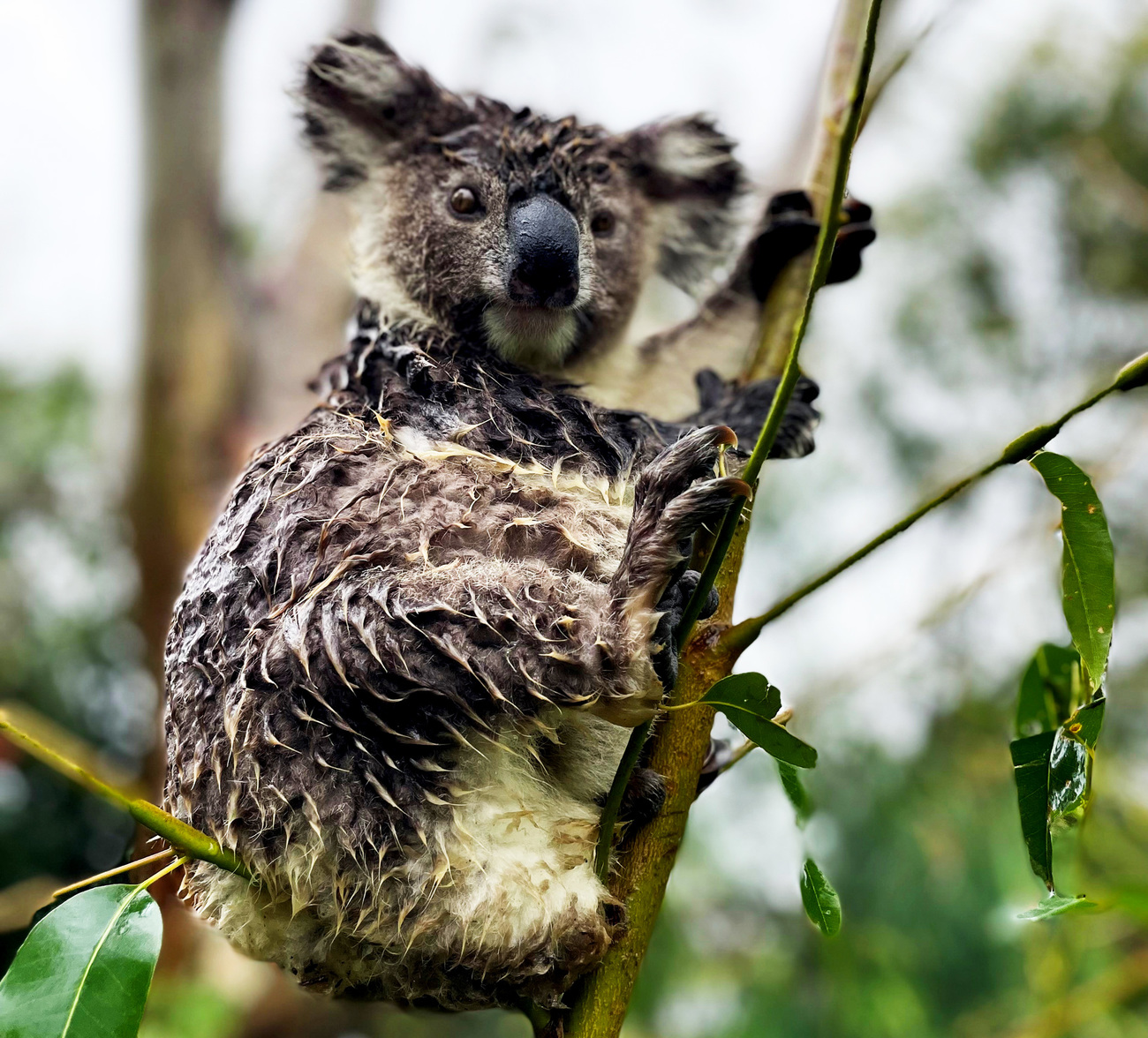
One mud-covered koala, named Tamami (Japanese for ‘beautiful gem’) was found with a tiny joey in her pouch. She spent the night in the care of the dedicated team at Friends of the Koala, who gently washed all the mud off both mother and baby. The following afternoon, Tamami and her joey were released back to the wild.
Though the team picked a great tree for her release site, Tamami deemed it not good enough, quickly scurrying to another one nearby. We are so happy to see her thriving again in the wild, clean and healthy.
The next day, another mud-covered koala named Nima was found in our trap; she had been detected high in a tree by IFAW + UniSC specialist koala detection dog Bear the day before. Nima was brought to our partner Byron Bay Wildlife Hospital and also had a very young joey in her pouch. Both were cleaned carefully and released back to their home soon after.
Search and rescue continues in wake of Cyclone Alfred
March 19, 2025
IFAW continues to support rescue and rehabilitation efforts following Cyclone Alfred’s devastating impact on Australian landscapes.
On Thursday, IFAW’s Animal Rescue Program Officer has deployed to the Northern Rivers to join our response team and members of the Northern Rivers Wildlife Network in preparing for coordinated search and rescue missions.
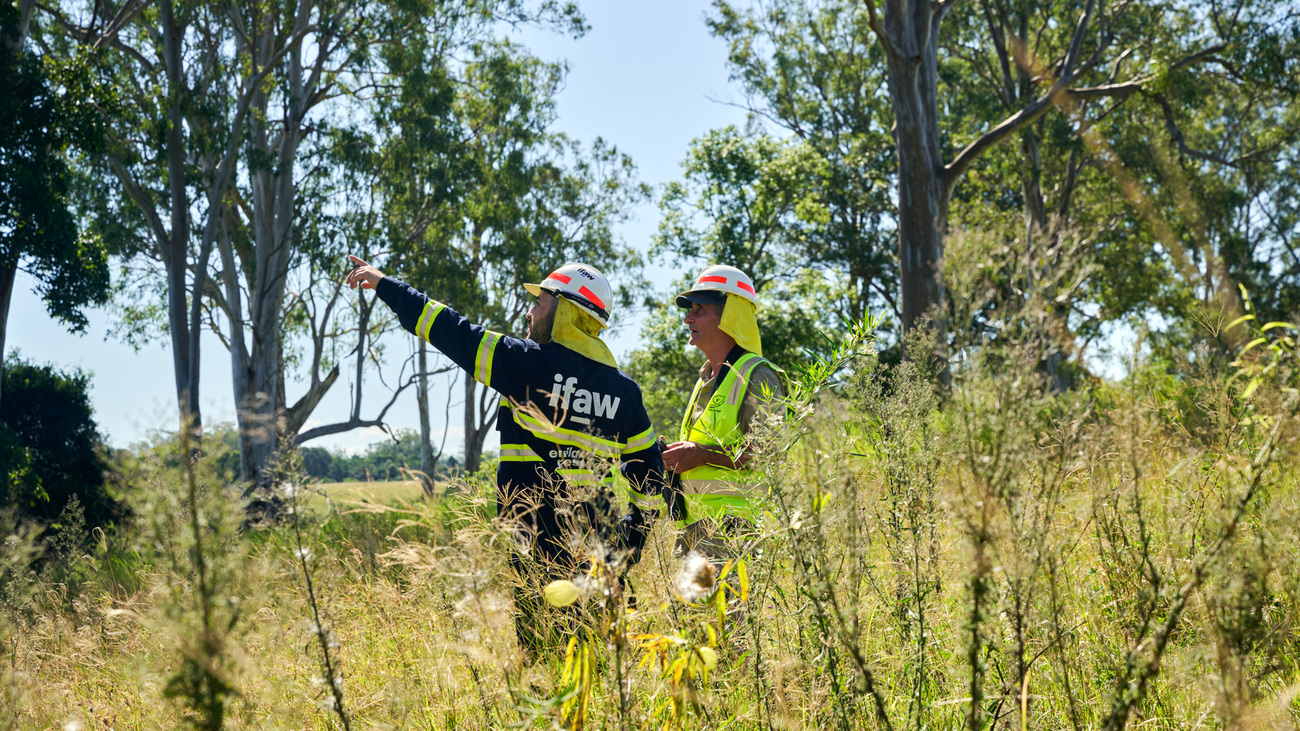
The IFAW team has been searching for koalas impacted by winds and floodwaters, helping to transport injured wildlife between carers and veterinarians, and assisting wildlife rehabilitators.
More than 50 koalas have been visually assessed, and three have been found caked in flood mud. This is a problem as flood mud can contain contaminants such as farming chemicals and sewage, and if the koalas try to lick it off, they may ingest these toxins. In some cases, the mud is so thick the clumps could cause ulceration on the skin and stress to the koala.
Rescuers have set traps to catch mud-covered koalas, and when captured, we will work with vet teams to decontaminate and clean them.
These collaborative search and rescue efforts are led jointly by IFAW and our partner Friends of the Koala and incorporate veterinarians, veterinary nurses, and rescuers from other Northern Rivers Wildlife Network members.
On Wednesday, another large koala search is planned with Team Bear.
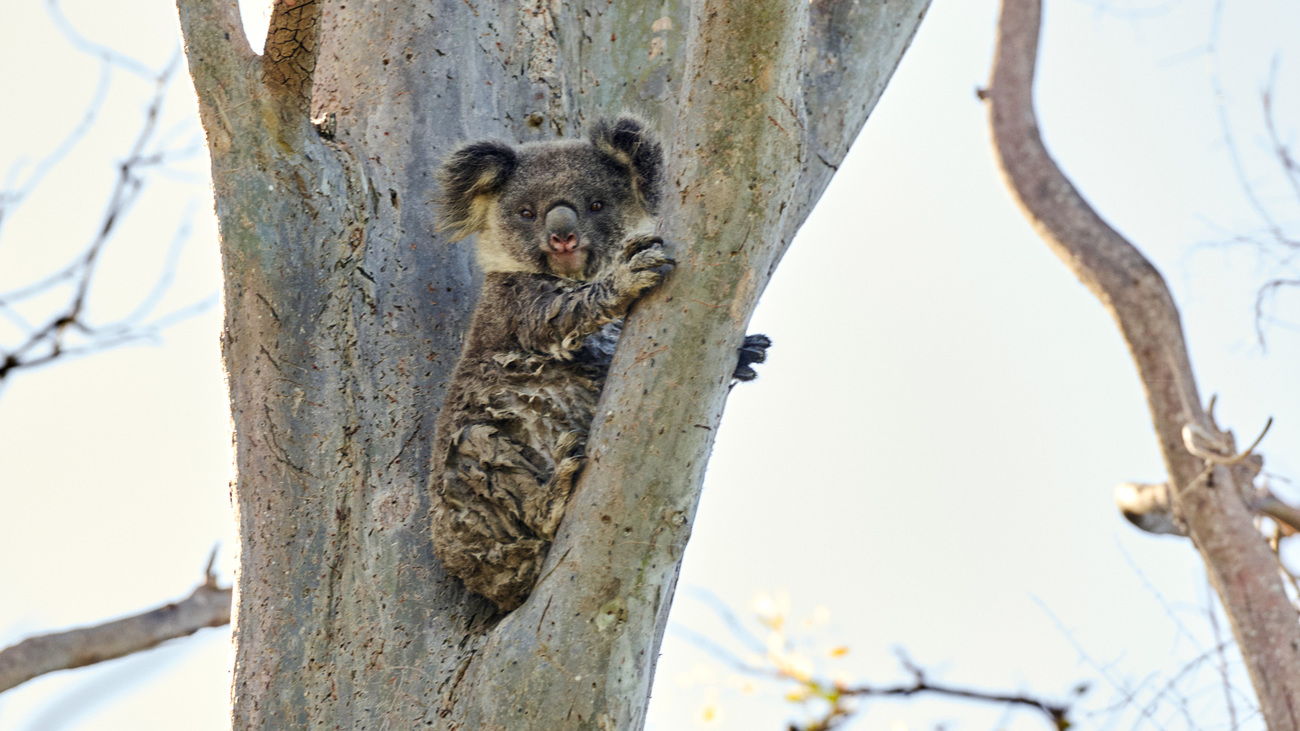
In addition, IFAW has been helping Byron Bay Wildlife Hospital to cope with the influx of animals in need, including a falcon who was relocated back to its rehabilitation enclosure after being evacuated.
We have taken the opportunity to train some Northern Rivers Wildlife Network team members to lead search and rescue missions, and we have helped them develop their Incident Action Plans and risk mitigation documentation and protocols.
In addition to our work on the ground, we are also providing support to several organisations:
- Friends of the Koala, for disaster response equipment, wildlife search and rescue expenses, and ongoing rehabilitation costs for koalas in care
- Byron Bay Wildlife Hospital to support veterinary care for cyclone-impacted animals
- Australian Seabird and Turtle Rescue for rehabilitation and release expenses of sea turtles and sea snakes
- A licensed wildlife carer to replace an aviary destroyed by the cyclone
IFAW on the ground in Cyclone Alfred’s aftermath
March 10, 2025
Ex-Tropical Cyclone Alfred finally crossed over the mainland on Sunday morning, two days later than expected, which meant areas under the southern flank experienced four days of torrential rain and wind.
It then turned into an east-coast low, and its associated storms have caused widespread havoc as far north as Hervey Bay (300 kilometres north of Brisbane), in the Brisbane metropolitan area, and in regions south and west of the city.
Meanwhile, rain continues to fall in northern New South Wales, although rivers are slowly subsiding, and the wind has eased.
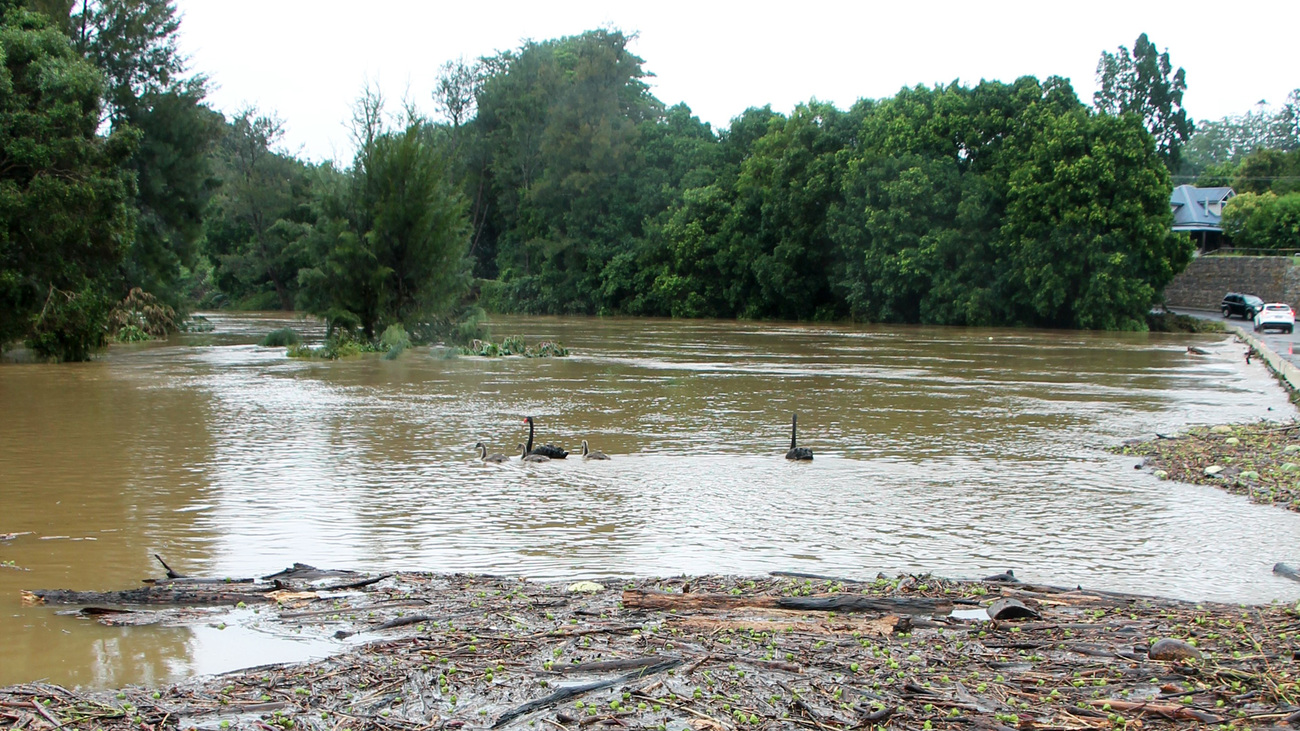
It remains difficult and dangerous to conduct any search and rescue activities in these conditions. However, IFAW has deployed three responders who will be involved in koala rescue (two are also affiliated with our partner Friends of the Koala), transportation of injured wildlife between carers and vets, assisting wildlife rehabilitators and veterinary nurse support as needed.
We have also put on standby an additional wildlife veterinarian, who is local to the area and has expertise with koalas and sea turtles.
IFAW continues to coordinate the Northern Rivers Wildlife Network response to the event and serves as the network’s government liaison.
We are in close communication with many local wildlife organisations. This includes Australian Seabird and Turtle Rescue, as they undertake the rescue of turtle hatchlings impacted by severe beach erosion.
‘Team Bear’ remains on standby for search and rescue when areas become accessible.
IFAW supports evacuations and rescues in Australia amidst Cyclone Alfred
March 7, 2025
Tropical Cyclone Alfred continues to defy weather forecasts and has slowed down just off Australia’s east coast, near the border between Queensland and New South Wales. This has extended the event, with already flooded areas now still expecting at least another 24 hours of heavy rain and strong winds.
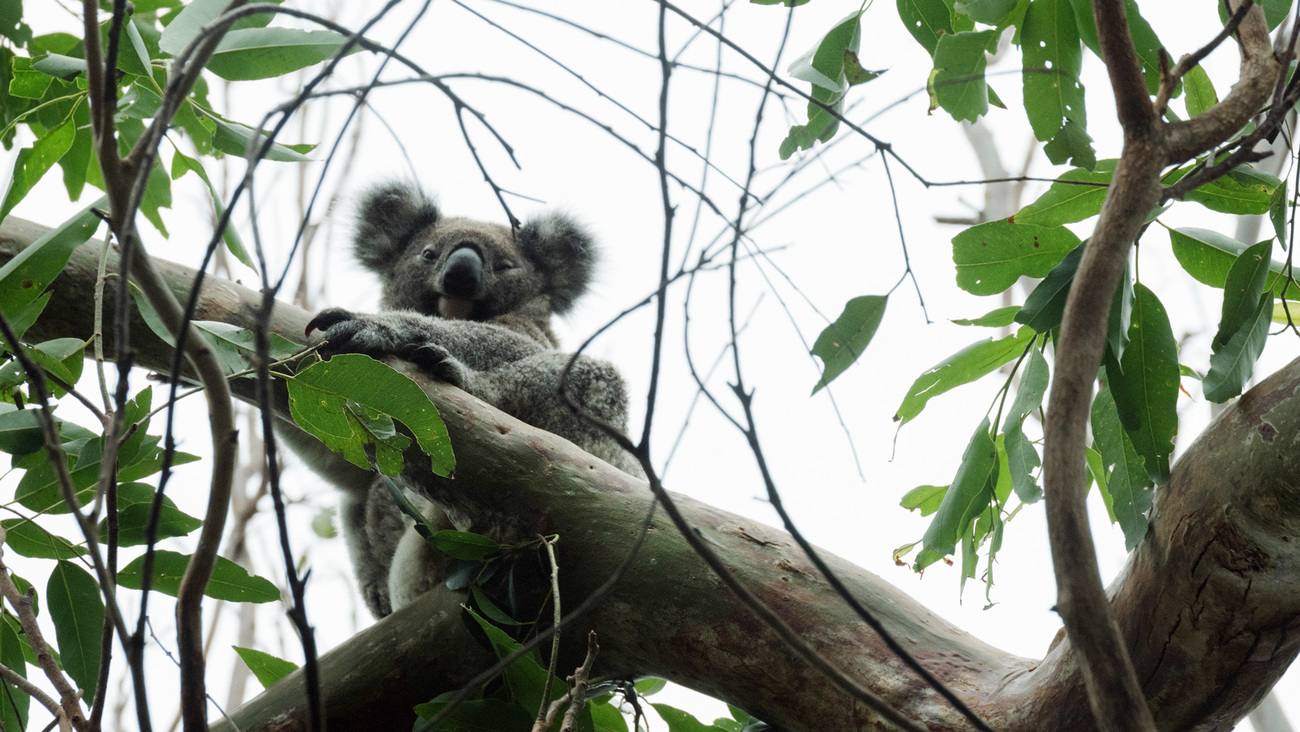
IFAW’s preparedness work over the last few years in the affected region is coming to the fore. We have guided many groups, taken the lead in several activities, and ensured disaster responders in the area ready to take action at a moment’s notice.
Since Black Summer, IFAW has led the Northern Rivers Wildlife Network’s (NRWN) emergency preparedness and response, with the aim of coordinating resources and information sharing. Organisations involved include:
- Friends of the Koala
- Byron Bay Wildlife Hospital
- Northern Rivers Wildlife Hospital
- Northern Rivers Wildlife Carers
- Australian Seabird and Turtle Rescue
- Tweed Valley Wildlife Carers
- WIRES Clarence Valley and Northern Rivers branches
- Vitality Vetcare
Through NRWN, we have already helped facilitate evacuations of animals from carers in low-lying, flood-prone areas and have more than 40 personnel on standby.
We are already seeing wild animals impacted by the weather, including a koala who was rescued after being blown out of a tree from high winds. Rescues are currently paused while teams hunker down for the impacts of the cyclone.
In New South Wales, we are also helping draft frameworks for safety assessments for wildlife personnel operating in floods and cyclones, as well as guidelines for evacuations of animals in home-based rehabilitation.
In addition, we are liaising with wildlife disease groups to investigate concerns and procedures for possible HPAI from cyclonic winds blowing pelagic birds on-shore. HPAI H5N1 is not present in Australia but has recently been detected in a nearby Antarctic island.
Many of our project partners are within the cyclone’s reach. We are in regular contact to ensure they are supported through this disaster. Potentially affected include: Friends of the Koala; Byron Bay Wildlife Hospital; Northern Rivers Wildlife Hospital; Ngunya Jargoon Indigenous Protected Area (IPA); Detection Dogs for Conservation, University of the Sunshine Coast (which have evacuated); Great Eastern Ranges (GER) and alliance partners along our ‘Bunyas to Border Koala Climate Corridor’; Wildlife Rescue Sunshine Coast; and Port Macquarie Koala Hospital.
‘Team Bear’ is on standby for koala search and rescue in aftermath of cyclone.
IFAW on standby during Tropical Cyclone Alfred in Australia
March 6, 2025
Tropical Cyclone Alfred is forecast to make landfall today or Friday morning on the eastern Australian coast, with damaging wind gusts and heavy rainfall expected to impact a large warning zone spanning Queensland and New South Wales.
IFAW coordinates the Northern Rivers Wildlife Network’s emergency preparedness and response teams, located in northern New South Wales, an area predicted to receive the worst of the weather, from the southern flank of the cyclone. We have put all assets—three wildlife hospitals and four wildlife rescue/care groups—on standby.
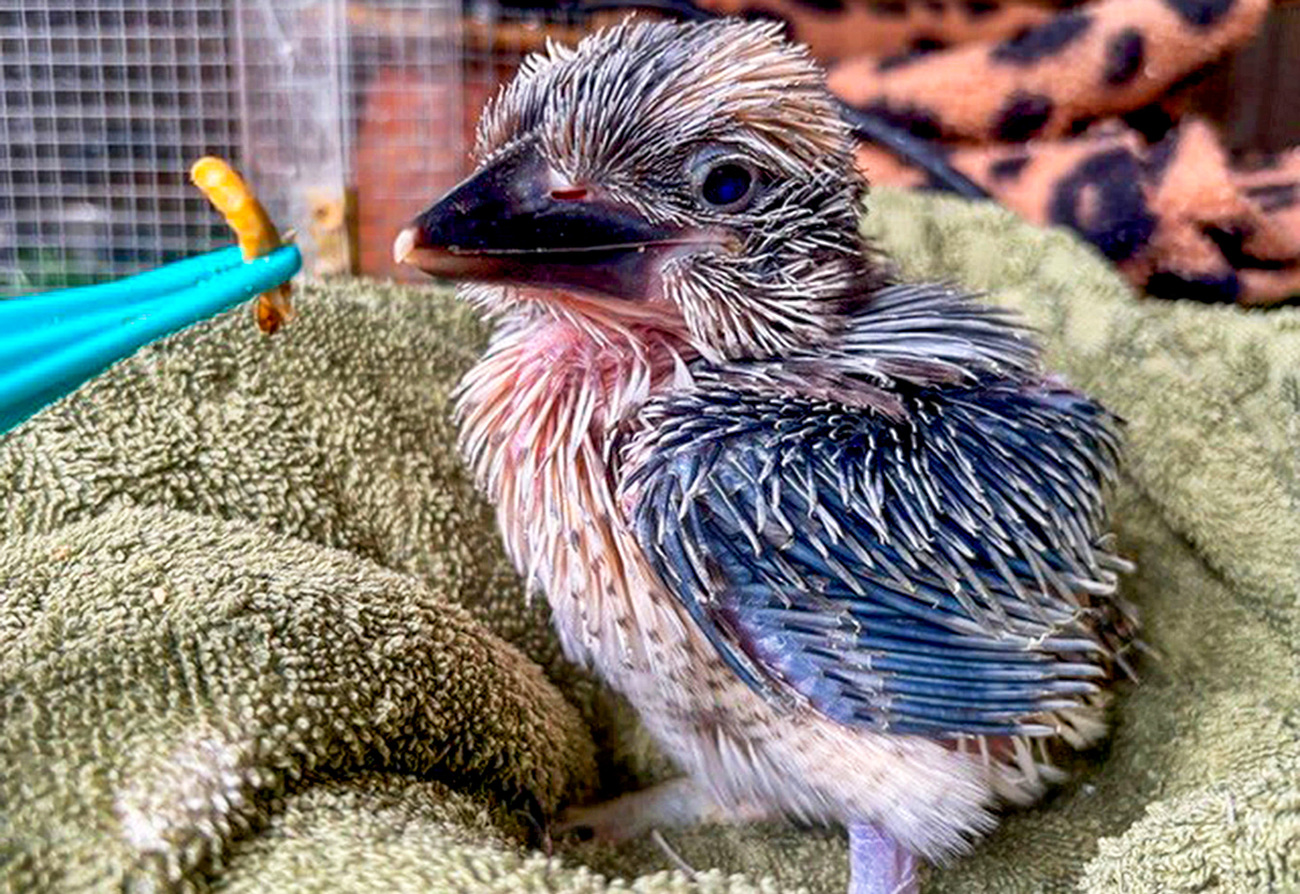
Some organisations are already preparing to evacuate, and we have offered our support, including deployment.
We are working with government agencies on wildlife response during floods, putting our prior planning into practice. IFAW has also offered support to several wildlife rescue organisations in Queensland.
Related content
Every problem has a solution, every solution needs support.
The problems we face are urgent, complicated, and resistant to change. Real solutions demand creativity, hard work, and involvement from people like you.